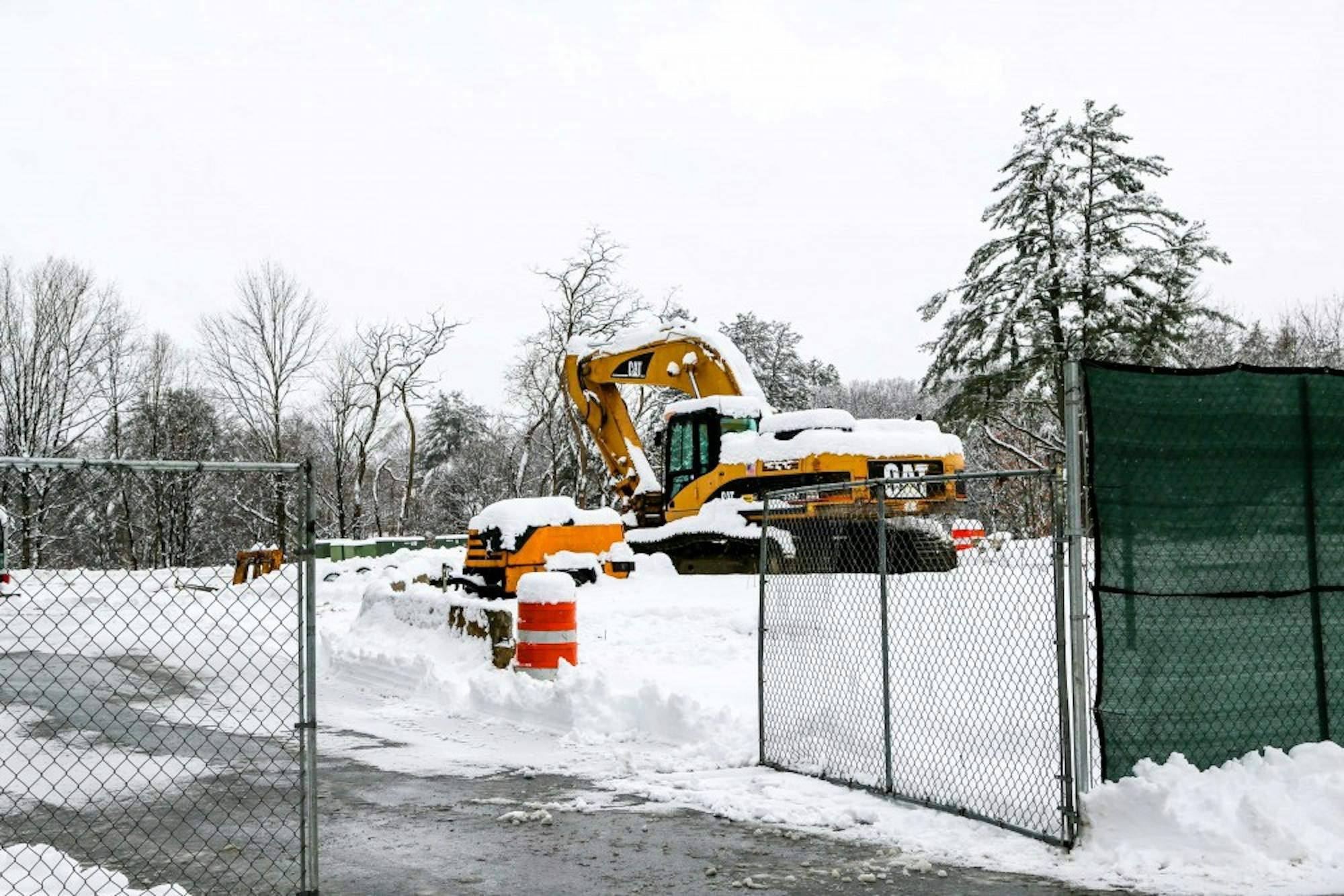Gound clearing and plans to excavate the west end of campus have already begun as the College prepares for the construction of a new building that will soon house both the computer science department and the Thayer School of Engineering.
Thayer will gain a “new facility which brings together engineering, computer science, the campus entrepreneurship center and the campus electron and microscope center,” provost Joseph Helble said.
According to Helble, the College has broken ground on the parking garage and is set to break ground on the building early this fall. The new building is set to be in use by fall 2021.
The construction will also include a new building to house the Irving Institute for Energy and Society.
The College has recently seen a sharp increase of undergraduate engineering majors, Helble said. He added that even approximately 50 percent of the students not majoring in engineering have taken courses in engineering — for example, in Engineering 12, “Design Thinking,” particularly since the creation of the human-centered design minor.
Helble and Thayer interim dean Laura Ray said the central purpose for the creation of the new Thayer facility will be to house more engineering courses and nearly twice the number of engineering professors as the original building.
Ray said she believes current students will benefit from the on-boarding of faculty and the increase in the number of sections offered for popular courses like Engineering 12, “Design Thinking,” which has in the past had a wait list of upwards of 200 students. She added that the process of recruiting new faculty has already begun.
Although the new building was originally intended for new Thayer faculty, it will now also house the computer science department, according to Ray.
“The notion that the physical world that engineering represents and the digital world computer science represents are separate has really gone away,” Helble said. “The worlds have come together.”
Housing the two departments under the same roof will also allow the College to move forward with its entrepreneurship mission.
While engineering and computer science will remain separate degrees, the Magnuson Center for Entrepreneurship, which includes the Dartmouth Entrepreneurship Network and the DALI Lab, will join the computer science department in moving to the new joint building.
The project is likely to cost upwards of $200 million, with funding expected to come from donations by alumni and friends of the College. The naming donors of the MacLean Engineering Sciences Center gifted the school $25 million for the project. According to Helble, there will be a space in the new building to recognize those donors who are making the project possible.
“Their support is really inspiring, and it wouldn’t be possible to do this for Dartmouth without it,” he said.
This past April, the College submitted its construction plans to the town of Hanover for approval. Hanover director of planning, zoning and codes Robert Houseman noted that in the months prior to the design submission, he and his staff had been working with the College to ensure all zoning laws and building codes of the town would be met. The Hanover police, fire and public works departments then reviewed the College’s design plans and provided recommendations.
The planning board raised concerns about the potential noise generated by the new building. The College provided technical information, and “after consideration, the planning board approved the project,” according to Houseman.
In addition to the new building and the construction, the project comprises of an underground parking deck and modifications to Engineering Drive and West Wheelock Street, which will include a new pedestrian crossing, sidewalks and bike lanes.
While the construction will likely be inconvenient for some Hanover residents, Helble believes the expansion of the west end of campus, particularly to Thayer, will have a lasting positive impact on the community at large.
“About 40 percent of the faculty have started a company based on their research in roughly the past 10 years,” Helble said. “The goal is to get that to 50 percent. That will make the Thayer school without question the most entrepreneurial school of engineering in the country on a per capita basis.” These companies are almost always first established in the Upper Valley.
“If these individuals are successful, they will have a very positive impact on the local economy and the local environment creating high quality jobs that people can be proud of,” he said.




